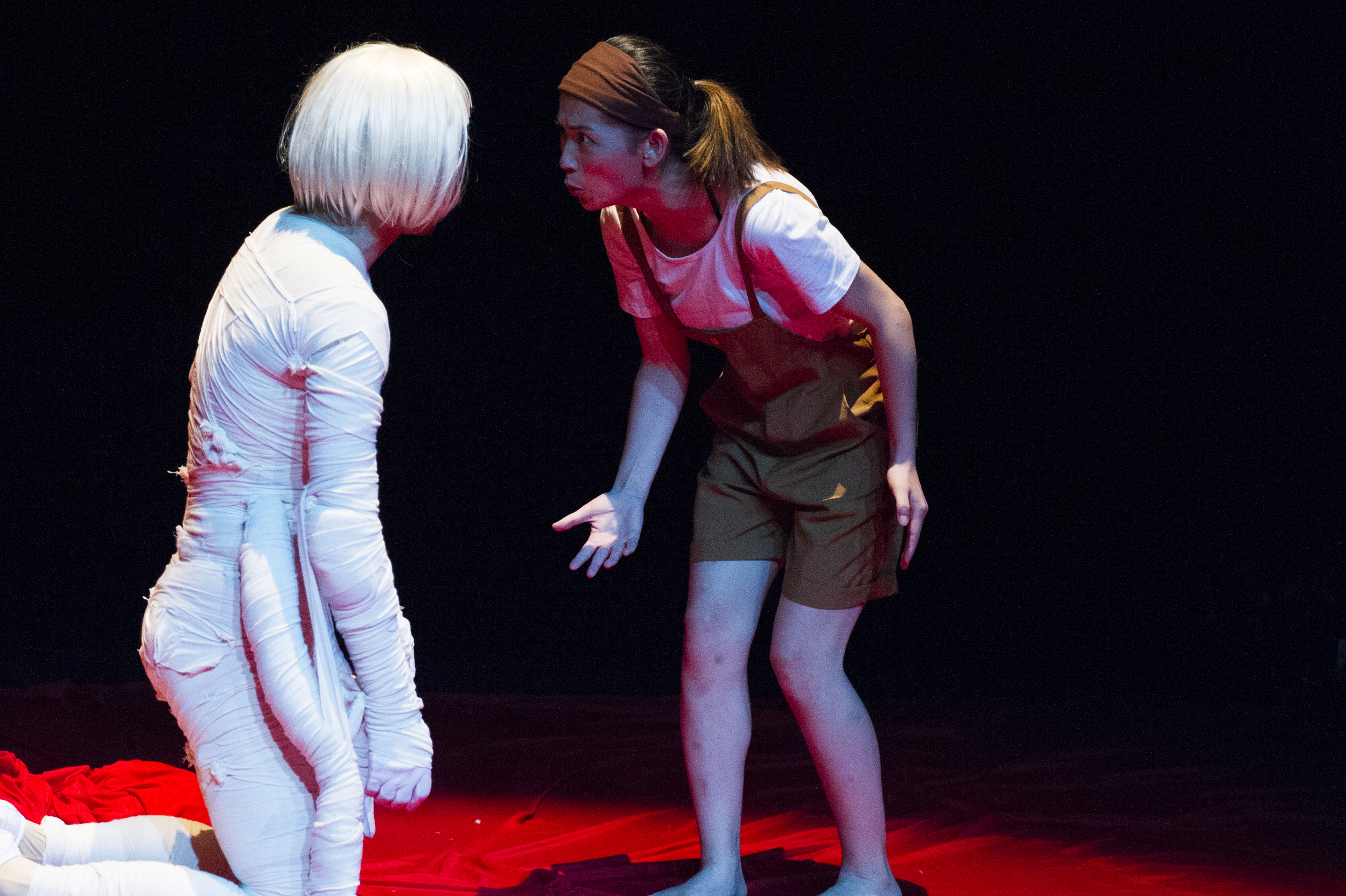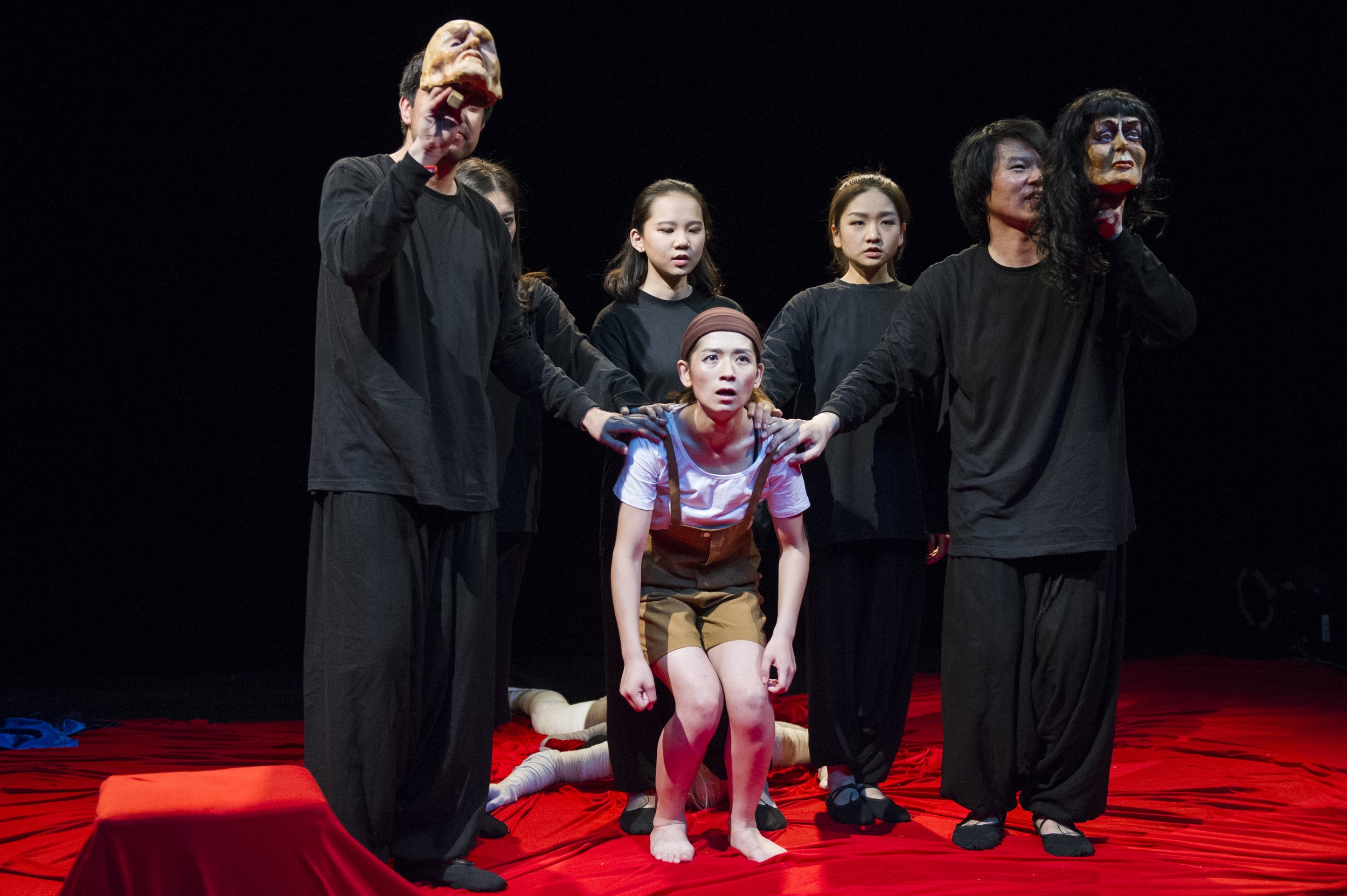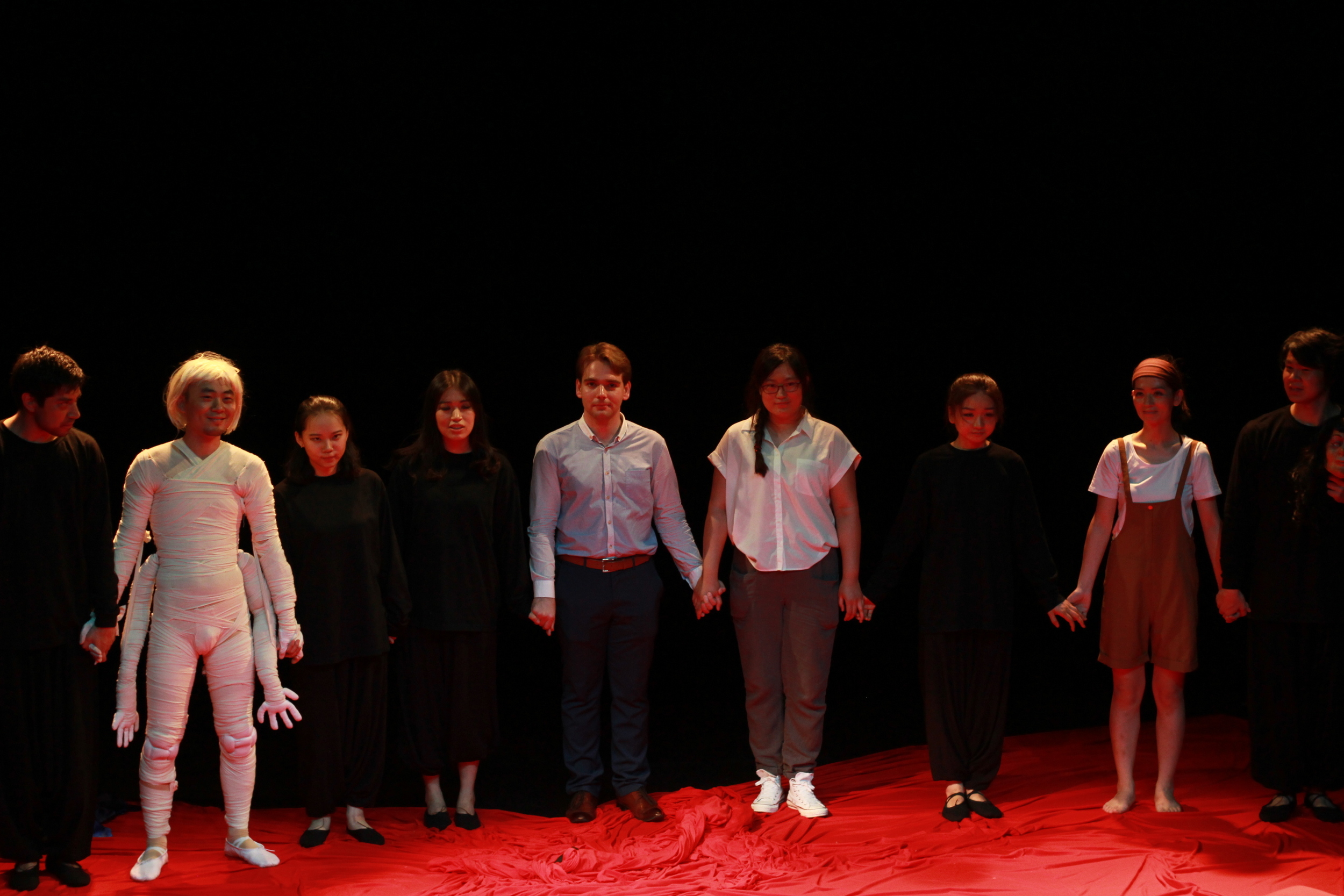Photo by Hannah Lincoln
"Chinese theater is on the brink of a Golden Age."
Profile:
Raimund Rosarius
罗海明
German playwright, director, and discernible genius Raimund Rosarius talks about the exciting and creative arena of Chinese theater.
Posted Oct 13, 2015
Hometown: Duren, Germany
Before Beijing: Directed his first pieces at a cultural factory in Duren, then became Assistant Director at a state theater in Cologne, Germany. Moved to Vienna, Austria to study theater, film, and media. Did most of his writing over four years in Vienna, and came to Beijing on a year-long exchange which immediately altered his life plans.
Beijing Story: Studied in Germany before enrolling at the Central Academy of Drama's Master's program of theatre directing in Chinese as a student of Liu Wei in Beijing. Began studies in September 2014, and hit the ground sprinting.
Tell me about Chinese theater today.
"Chinese theater is very open and very exciting right now. I studied drama history, and a common trend is to go from an experimental phase to self-reflective phase to perfectionist to deconstructive. China is in the experimental stage right now, but I can see them moving into being more self-reflective. It's on the brink of a Golden Age."
"In Germany, old people and drama critics go to shows. In China, it's young people. They think it's fun and exploratory, and they expect it to bring something new to their lives. They are familiar with traditional Chinese opera, but the Western form of spoken theater they look at like consumer goods from other countries -- diverse and exciting. It's a common belief among these drama-goers that modern China does not have its own theater form or style, and that it can't, because spoken drama is this kind of Western import, like a BMW. But I don't see it like that. I see them forming their own themes, making narratives about their own lives. It's already here."
How are you received as a German director in China?
"People don't have hangups about working with a foreign director. Our group has someone from Syria, someone from Chile, someone from Japan, me from Germany, and of course several Chinese people. We perform in our own languages, for the most part, and the audience reads the Chinese subtitles on the screen. I've found that Chinese audiences are totally fine with watching a subtitled, foreign play. They expect dramas to be foreign. They expect it to be challenging."
"Chinese actors are so used to failure that they don't fear it. For instance, we've applied to Chinese festivals that we are very qualified for, but been rejected for mysterious reasons. Nothing you can do about it. Chinese expect this, and are mentally tough about it."
Differences between working in theater in China versus Germany?
"So many differences. In Germany, theater is seen as something elite, that you wear a suit to go to. It was founded in the monarchy era, so the behaviors of that era are still holding over to today. Germany sponsors its theaters, which means they have huge budgets but little freedom. It is hard to break into as an aspiring actor or director, but once you're in you're all set. The problem then is pressure for perfectionism. German directors are creating for the critics, not for the general populace. They focus on being absolute perfectionists. In China, there is so much freedom to be creative in theater. First, most people involved are freelancing. You don't need to apply to a theater company to hire actors, like in Germany. You find who you would like to work with and set it up on your own. Of course this means you have to have strong networks. It's very Chinese."
"In Germany, actors are actors and directors are directors. You are expected to perfect your one craft. In China, people are more free to jump from one position to the other. Many directing majors become actors for their first jobs, to build up experience and networks before directing. I'm always getting asked if I'm going to direct a movie. In Germany, you'd never move from spoken drama to movie production."
"...that's what's good about Chinese actors -- they expect things to go wrong. And when things go wrong, you have to get creative. Chinese actors have to be creative and flexible."



"We had a well-known German troupe come here to perform. On the day of the show, it was discovered that the projector was broken, so they had to do it without this essential piece of equipment. They went crazy! In Germany it's just unthinkable that a piece of equipment would not be perfectly prepared for a show. But that's what's good about Chinese actors -- they expect things to go wrong. And when things go wrong, you have to get creative. Chinese actors have to be creative and flexible."
How have your own projects gone in China?
Raimund wrote and directed The Metamorphosis: A Matter of Duty in a Chinese context. He got the idea after meeting Ahmad Roumani, a talented puppeteer and stage designer on Beijing Drama Academy's campus. Recognizing that Chinese audiences relish innovative theater experiences, Raimund conceived of the play using both actors and puppets.
"I've gotten two types of responses in the media. One was very flattering -- he understood all my thoughts, such as why I chose certain colors, what the story was trying to say, and the subtler roles of the other characters. Then there was a Taiwanese critic who demanded to know why I was showing a Chinese audience about Chinese people. He said, 'We already know about us -- show us something we don't know!' And that's just the fashion these days: people want something new. But honestly, if I had to put on a German show, I wouldn't know what to do. Folklore? Modern society? I'm not really sure what German theater means, or how I would show it to a Chinese audience. Most of our group is Chinese, and those who aren't are long-term Beijingers. We draw our inspiration from China. We can't ignore that."
Raimund and his group are going to put on The Old Go Bad at the Wuzhen International Theater Festival from October 15-19. The Metamorphosis in Beijing later on this Fall. To follow them for updates and announcements, scan their WeChat QR code.




